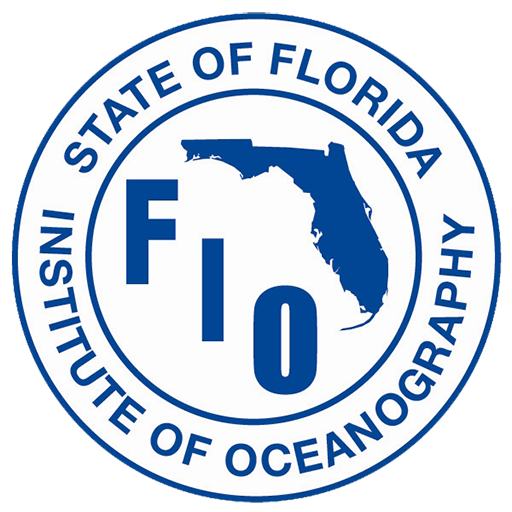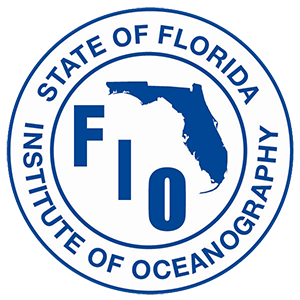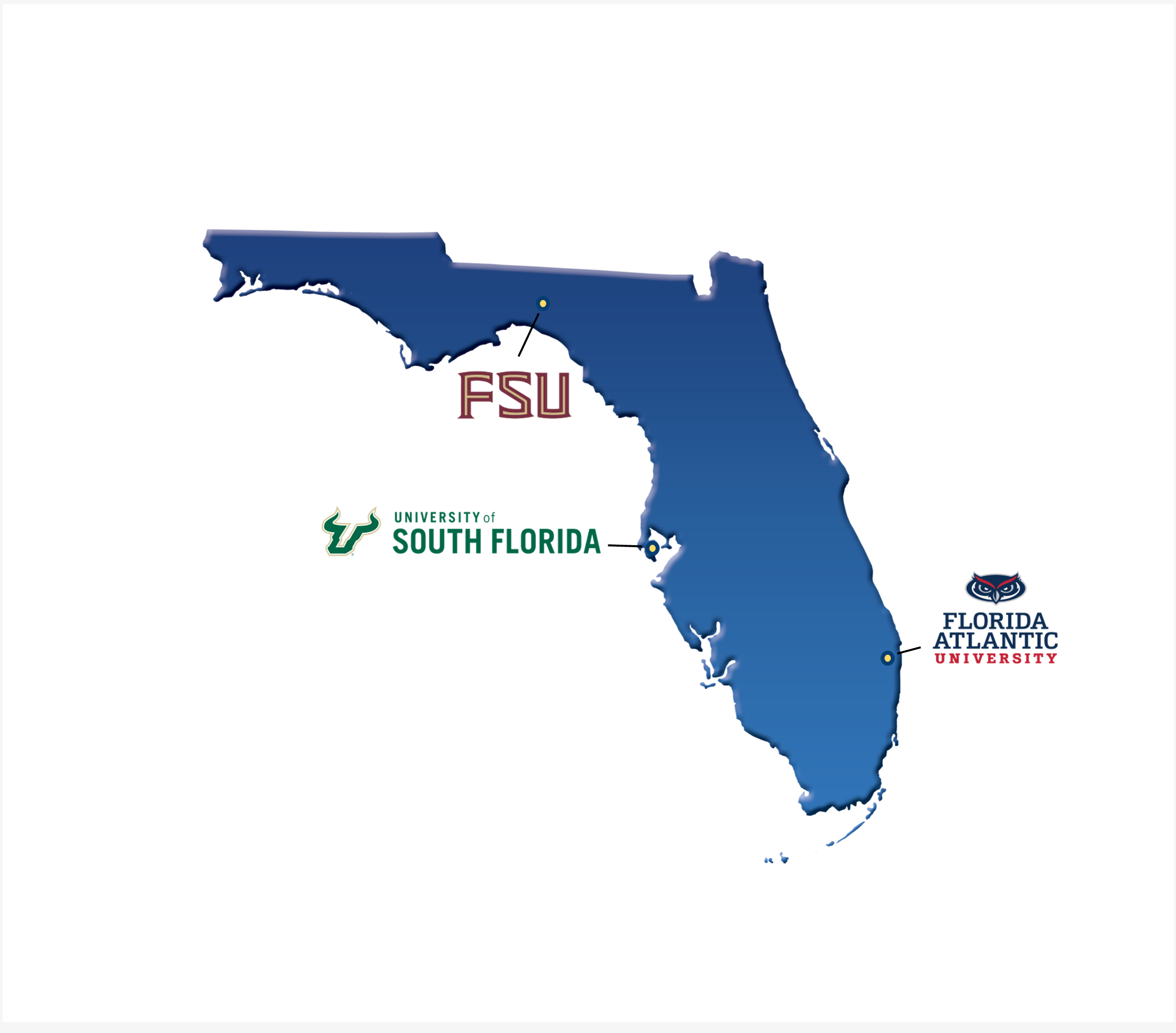ST. PETERSBURG, Fla. (June 16, 2025)-The Florida Institute of Oceanography’s (FIO) Florida RESTORE Act Centers of Excellence Program (FLRACEP) is pleased to announce the selection of four projects to study the De Soto Canyon and connected ecosystems. The research will contribute significant knowledge of the physical dynamics as well as the habitat structure and function in the northeastern Gulf. Study outcomes include improved understanding of mesophotic coral, vertically-migrating prey, large deep-sea fishes, and the critically endangered Rice’s whale habitat and ecosystems.
“We’re eager to see this slate of projects embark as they advance the objective of our 10-year Strategic Plan, conducting research that generates long-term understanding of the West Florida Shelf and connected systems to support improved and dynamic management,” said Program Management Team chairperson, Dr. Bonnie Ponwith.
Awards were made to the following lead investigators and institutions:
Dr. Dean Grubbs, Florida State University, Understanding Long-term Community Structure and Population Dynamics of Large Deep-sea Fishes from De Soto Canyon to the West Florida Escarpment
Dr. Mingshun Jiang, Florida Atlantic University, Influences of Upwelling and Riverine Nutrient Plumes of the Mesophotic Coral Ecosystems of the West Florida Shelf
Chad Lembke, University of South Florida, Systematic Observations of Rice’s Whales, Their Prey, and the Oceanographic Conditions of the Northeastern Gulf of America
Dr. Yonggang Liu, University of South Florida, Characterizing Rice’s Whale Habitat on the Northern West Florida Shelf Using a Moored Array, Ship Transects, Remote Sensing, and Numerical Modeling
Collectively these projects will help inform management practices through the application of autonomous technologies, use of passive and active acoustics, deployment of ocean observation platforms, and improvement of ocean models.
U.S. Representative Kathy Castor (FL-14), a longtime champion of Gulf Coast restoration and architect of the Gulf of Mexico Economic and Environmental Restoration Act, said: “I’m proud to see FLRACEP investing over $4 million in groundbreaking Gulf research, building on the RESTORE Act’s promise to protect both our environment and economy. This funding supports work led by Florida researchers to unlock critical insights about species like mesophotic corals and the endangered Rice’s whale. It represents a powerful continuation of our work since the Deepwater Horizon disaster, ensuring that BP penalties not only restore the Gulf, but also fuel homegrown science, empower coastal communities, and safeguard our Blue Economy for decades to come.”
Over $4 million were awarded to the multidisciplinary teams, which supports researchers, engineers, fisheries management experts, and students. In addition, vessel and technology support through FIO is included to allow researchers access to the remote marine environment. The research also leverages considerable infrastructure and research funded through the National Oceanic and Atmospheric Administration and Office of Naval Research.
“We are very excited FLRACEP has selected proposals that will contribute to Rice’s whale research and management,” said Clay George, who oversees Rice’s whale conservation efforts at NOAA Fisheries. “We hope these studies will help explain the underlying processes that make the De Soto Canyon region such a hotspot for these endangered whales, which is critically important for protecting their habitat and recovering the species.”
The three-year projects begin in spring/summer 2025 and FIO will facilitate close collaboration between the projects to build synergistic activities and improve the synthesis of results for management applications.
About the Florida RESTORE Act Centers of Excellence Program
Funding for the Centers of Excellence and FLRACEP comes from the Resources and Ecosystems Sustainability, Tourist Opportunities, and Revived Economies of the Gulf Coast States Act of 2012 (RESTORE Act), which established a Gulf Coast Restoration Trust Fund in the Treasury of the United States. Florida Institute of Oceanography is the Gulf Coast State Entity responsible for administering FLRACEP. The program establishes Centers of Excellence in the State of Florida to conduct research through a competitive grants process. To date, over $14 million has been awarded to 11 Florida institutions to establish Centers of Excellence. For more information visit: https://florida-restore-act-centers-of-excellence-program-fio-maps.hub.arcgis.com/
About the Florida Institute of Oceanography
The Florida Institute of Oceanography is an Institute of the University of South Florida and a Consortium that consists of 35 members across the state. Established by the Florida Board of Governors, FIO provides support and shares marine science resources between the state’s universities and private, nonprofit marine research entities. FIO operates the R/V Western Flyer, R/V Weatherbird II, R/V Hogarth and the Keys Marine Laboratory in Layton, Florida. Learn more at fio.usf.edu.


